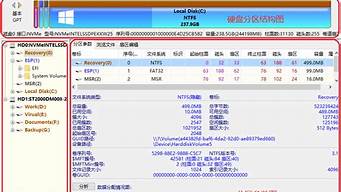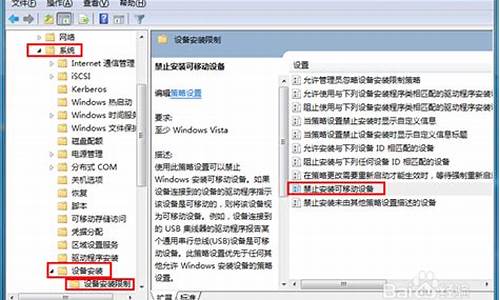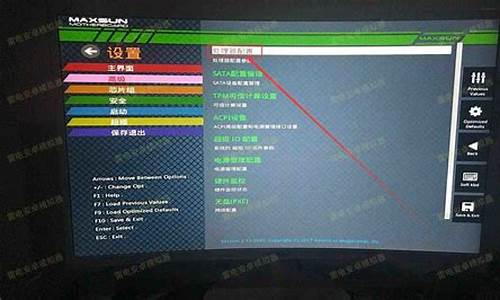大家好,今天我将为大家讲解biosphere的问题。为了让大家更好地理解这个问题,我将相关资料进行了整理,现在就让我们一起来看看吧。
1.帮我整理一下英语词汇中的前缀和后缀
2.英语的前缀和后缀表
3.揭开暗能量生物圈的神秘面纱

帮我整理一下英语词汇中的前缀和后缀
前缀
一.表示否定的前缀
1.dis-加在名词、形容词,动词之前。
disadvantage(缺点)dishonorable(不光彩的)disagree(不同意)
2.in-加在形容词,名词之前
incorrect(不正确的),inability(无能,无力),inaccurate(不准确的)
3.im-加在字母m,b,p之前
impossible(不可能的),impolite(不礼貌的),impudence(厚颜无耻)
4.il-加在以1开头的词前
illegal(非法的),illiterate(文盲的,无文化的)illogical(不合逻辑的)
5.ir-加在以r开头的词前
irregular(不稳定的),irresistable(不可抵抗的),irresolvable(不能分解的,不能解决的)
6.un-加在名词,形容词,副词之前
unfinished(未完成的)undoubted(无疑的)unemployment(失业)
7.non-加在形容词,名词前
non-existence(不存在),non-essential(不主要的),non-electrical(非电的)
8.mis-加在动词、名词之前
misunderstand(误解),misjudge(误判),misleading(误导),misfortune(不幸)
9.dis-加在动词之前
disappear(消失),disarm(解除武装),disconnect(失去联系)
10.de-加在名词,形容词之前
demobilize(遣散;使…复员) decolor (脱色, 漂白)
11.anti-加在名词、形容词之前
anti-Japanese(抗日战争),anti-social(厌恶社会的,反社会的),antidote(解毒药)
12.counter-加在名词、动词前
counterattack(反攻,反击),counteract(抵抗,阻碍)counterrevolution(反革命)
二.表示“前before”的前缀
1.pre-
preconception(成见),pre-exsiting(先于……而存在的),pre-selection(选举前的) preface(前言)
2.Ante-
anteroom(前室,接待室),antecessor(先行者,先驱者)
3.Fore-
forehaed(前额),foreground(前景),foreman(工头,领班),foresee(预见,先见),foretell(预言)
4.Pro-
programme(计划),prologue(序幕)
5.Ex-
ex-president(前任总统)ex-wife(前妻)
三.表示“后-post”的前缀
1.post-
post-war(战后),post-position(后置词),postmeridian(下午)
四.表示“低”、“下”的前缀
1.Hypo-
Hypocrisy(伪善,虚伪),hypothesis(假设),pypocholoride(次氯酸盐)
2.Infra-
Infra-red(红外线),infrahuman(低于人类的),infrasonic(亚声的,次声的)
3.Sub-
Sub-editou(副编辑),sub-way(地铁),sub-conscious(下意识的),submarine(海下的),subtropical(亚热带的),subtitle(副标题)
五.表示“回”、“再次”、“向后”的前缀
1.Re-
Refuel(给…加油),retranslate(再译),reinforce(加强),reconstruct(重建),return(返回)
2.Retro-
Retrograde(倒退的),retrospect(回顾)
六.表示“共同”、“和”的前缀
1.Co-
co-exist(共存),co-operate(合作),co-education(男女同校)
七.表示“相互”、“之间”的前缀
1.Inter-
Interchangeble(可互换的),interdependent(互相依靠的),international(国际的),inter-national(交往)
八. 表示“出”、“超出”的前缀
1.Ec-
Eclipse(蚀),ecstasy(狂想)
2.Extra-
Extraordinary(非凡的),extramural(校外的),extrasensory(超感觉的)
九.表示“超过”的前缀
1.hyper-, preter-, super-, sur-, ultra-
hyper-sensitive(过敏的),preterhuman(超人的)
十.其它的前缀
1.auto-自
automatic(自动的),auto-autobilgraphy(自传)
2.mal-坏,恶
Malnutrition(营养不良),maltreat(虐待)
3.Micro-
Microscope(显微镜),microtome(切片机)
4.Tele-远
Telegram(电报),telephone(电话),telescope(望远镜)
5.Demi-,semi-hemi-
Semi-circle(半圆),hemisphere(半球),demilune(半月,新月)
6.Uni-, mono-(单一, 单独)
Monotone(单调),monologue(独白),uniform(制服)
7.Bi-,di-二
Biyearly(二年一次的),biweekly(二周一次的),dichloride(二氯化物)
8.Tri-三
Triangle(三角),tripld(三角架)
9.Multi-多
multi-colored(颜色多样的),multi-national(多国的)
10.Poly –多
Polygon(多角形),polytomic(多原子的)
11.Arch-首领
archbishop(大主教),architect(建筑师)
12.bene-善,好
benefit(利益),benevolence(善意)
13.homo-同
homosexual(同性恋的),homograph(同形异义字)
14.neo新
neo-colonialism(新殖民主义),neolithic(新石器时代的)
15.ortho-正确,直
orthogonal(直角的),orthodox(正统)
16.philo-挚爱
philosopher(哲学家)
17.proto-原始
protohydrogen(初氢),prototype(原型),protoplasm(原生质)
18.pseudo-假的, 伪的, 冒充的
pseudonym(匿名),pseudo-communism(假共产主义)
19.a-,ab-,abs-(只有在t,c之前)从,自
avoid(避免),absent(缺少的),abstain(抑制),abstract(吸引)
20.Apo-,aph-来自
apology(道歉,谢罪),apostle(倡言者,先驱)
21.se-分离
separation(分开),secure(安全的),sedition(煽动叛乱)
22.para-防
parachute(降落伞),
23.omni-所有的,公共的
omnibus(公共汽车),omnipotence(万能)
24.pan-全,泛
Pan-American(全美的),pancean(万灵药),panorama(风景的全貌;万花筒)
25.panto-全
pantisocracy(乌托邦大同世界),pantoscopic(视野广大)
26.dia-通过,借以
diagonal(对角的),diagnosis(诊断),dialogue(对话)
27.Per-通过,彻底,不利
perambrlate(走来走去),perfect极好的
28.trans-通过,横过
transcript(抄本, 副本; 记录),translation(翻译),transparent(透明的),transport(运输),trans-plant(移植)
29.Com-,con-,cor-,col-共同,和,完全
comment(评论),compile(编辑),correlation(相互关系),collect(收集),corruption(贪污腐败),collaborate(合作,合著)
30.syn-共同
synonym(同义词),synchronization(同步),syntonic(谐振的),synthetic(人工的,合成的)
31.meta-和,在……之后
metaphor(比喻),metaphysics(形而上学)
32.Cis-在这一边
cisatlantic(大西洋这边的)
33.pen-几乎,相近
peninsular(.住在半岛上的居民,半岛(状)的, 形成半岛的)
34.en-,em-往……里,使……
encamp(扎营),enable(使……能),endear(使……受喜爱),embrace(拥抱,抓住(机会))
35.intro内在
intracardiac(心脏内部的),intramolecular(分子内部的),intracelular(细胞内部的)
36.intro-到……中
introduce(介绍),introspect(反省,内省)
37.dys-坏
dyspepsia(消化不良),dysentry(痢疾)
38.Eu-优,美好
eulogy(颂词),euphony(悦耳的声音)
39.ambi-,amphi-两者
amphibian(两栖的),ambidextrous(两只手都很灵巧的;心怀二意的;非常灵巧的)
40.penta-五
pentagon(五角大楼),pentagram(五角星),pentameter(五步诗句)
41.sex-六
sexangle(六角),sexennial(六年一度的)
42. sept-七
September九月(古罗马的七月),septennial(七年一度)
43.hepta-七
heptab(七个成套之物),heptagon(七角形)
44.octa-,octo,oct八
octagon(八角形),octuple(八倍)October (十月)
45.nona-,ennea-九
nonagon(九角形),ennead(九个一组)
46.deci-,deca-十
decimal(十进位的),decagramme(十克)
47.centi-百
centimeter(厘米),centipede(蜈蚣)
48.milli-千
millenias(千年的),millimeter(毫米)
49.Kilo-千
kilowatt(千瓦),kilometer(千米)
后缀
后缀-名词后缀
常见的此类后缀及其具体含义如下:
1.-ster,-eer,-er(or)意为:从事某种职业或参与某种活动的人(person engaged in an occupation or activity)例词:gamester,gangster,songster,engineer,profiteer,mountaineer,auctioneer,driver,teacher,director,actor,professor
2.-let意为:小或者不重要的东西(small,unimportant things)例词:booklet,leaflet,starlet
3.-ette意为:1)小的东西(small)例词:cigarette 2)假的东西(imitation)例词:leatherette 3)女性(female)例词: usherette
4.-ess意为:女性(female)例词:actress,poetess,hostess,paintress
5.-hood意为:时期(status;etc.)例词:boyhood,childhood,manhood
6.-ship意为:才能,状态,资格,品质等(skill,state,condition,status,quality)例词:leadership,friendship,membership,lectureship,sportsmanship
7.-ful意为:量(the amount which noun contains)例词:cupful,handful, mouthful,spoonful
8.-tion,-ion意为:1)状态,行动等(state;action;etc.)例词:action,oppression,possession,education,starva- tion 2)机构等(institution;etc.)例词: organization,foundation
9.-ment意为:状态,行动等(state; action;etc.)例词:movement,enslavement,pavement
10.-al意为:动作(action)例词:arrival,refusal,revival,recital,removal
11.-age意为:程度,数量等(extent; amount;etc.)例词:wastage,coverage, acreage,shrinkage,breakage,hostage
12.-ness;-ity(ty)意为:状态,品质(state;quality;etc.)例词:happiness, usefulness,selfishness,kindness,rapidity,activity,sanity,changeability
13.-ism意为:道义,主义,学说等(doctrine of,practice of)例词:idealism, impressionism,absenteeism,racism
[编辑本段]后缀-动词后缀
常见的此类后缀及其具体含义如下:
1.-ify意为:转为,变为(to turn into,to make or become)例词:beautify, diversify,simplify
2.-ize;-en意为:使……,变得……(to make or become ;to make into)例词:modernize,popularize,legalize,hospitalize,symbolize,ripen,widen,heighten,threaten
3.-ate意为:增加,使……(give or add,make or become)例词:originate, hydrogenate,validate,differentiate
[编辑本段]后缀-形容词后缀
常见的此类后缀及其具体含义如下:
1.-ful意为:充满,有(full of;hav- ing;giving;etc.)例词:useful,pitiful, hopeful,helpful,forgetful,thankful, fearful
2.-less意为:没有,无(without;not giving)例词:speechless,childless,harmless,hopeless,meaningless
3.-ly意为:有……品质的(having the qualities of)例词:beastly,manly, brotherly,friendly
4.-like意为:像……的(like)例词: childlike,statesmanlike,tiger-like
5.-y;-ish意为:像……一般的(somewhat like)例词:meaty,sandy, silky,hairy,leafy,watery,foolish,girlish,blackish,thinnish
6.-some意为:像……一样的;引起……的;有……品质的(like;causing; having the quality of)例词:troublesome,burdensome,wholesome,tiresome,bothersome
7.-able(ible)意为:能……的;可以……的(able to be ;capable)例词: changeable,readable,drinkable,comfortable,expansible,convincible
8.-ed意为:有……的(having,etc.)例词:wooded,pointed,moneyed, odd-shaped
9.-al意为:有……属性的,……类型的(nature of,typical of)例词:cultural,personal,regional,musical
10.-ary(ory)意为:属于……的,与……相连的(belonging to;connected with)例词:revolutionary,imaginary, contradictory
11.-ous意为:富含……的;有……品质的;像……的(full of;having the quality of;like)例词:glorious,erroneous,malicious,gracious
12.-ic(ical)意为:……类的;属于……的(typical of;belonging to)例词: historic,historical,methodic,methodical,dramatic,heroic
13.-ive意为:有……属性的;有某种倾向的(having the nature or quality of;given or tending to)例词:attractive, talkative,restrictive,defensive,preventive,constructive,sensitive
[编辑本段]后缀-副词后缀
常见的此类后缀及其具体含义如下:
1.-ly意为:以……方式(in a...manner;etc.)
例词:happily, boldly,attentive- ly,strangely
2.-ward(s)意为:表示方式或动作的方向(manner and direction of movement)例词:onward(s),backward(s),earthward(s),homeward(s),eastward(s)
3.-wise意为:1)按照……方式(in the manner of)例词:crabwise,clockwise2)就……而言(asfar as ...is concerned)例词:weatherwise ,educationwise
英语的前缀和后缀表
保护野生动物英语保护野生动物英语,我们应该拯救珍贵、濒危野生动物,保护珍稀动物可以更好的维持生物的多样性,社会各界在为保护水生野生动物做出积极努力。以下分享保护野生动物英语
保护野生动物英语1关于保护野生动物的英语作文范文一:
Many animals are in danger of dying out.As is shown in the chart, we can see the number of animal species decreases faster and faster and this trend will continue.From 1980 to 2010, at least 1 million animal species have disappeared.Worse still, more and more wild animals are in great danger.It is not a piece of sensational news; it is a fact, a harsh reality.Unfortunately, we may not see these animals in the near future.
很多动物频临灭绝的危险。图表显示,我们可以看到动物物种数量下降的速度越来越快,而且这种趋势将会持续下去。从1980年到2010年,至少有100万动物物种已经消失。更糟糕的是,越来越多的野生动物处于巨大的危险中。这不是一则耸人听闻的新闻,这是一个事实,一个残酷的事实。不幸的是,将来我们可能看不到这些动物了。
From the second picture, we can find some reasons.Why is the number of animal species declining year by year?Apparently animals have become victims of fashion industry.Animal skin has been used to make fashionable clothes and these clothes sell at a high price.So some greedy people begin to kill animals in a large quantity.This irresponsible behavior not only breaks the balance of nature but also endangers the living environment of human beings.
从第二幅图我们可以找到一些原因。为什么动物物种的数量一年年的减少呢?显然,动物成为了时尚工业的受害者。动物的皮被用来做时髦的'衣服,而且这些衣服都是高价出售。因此,一些贪婪的人就开始大量屠杀动物。这种不负责任的行为不仅打破了自然的平衡,而且使人类居住环境陷入危险。
As far as I am concerned, something must be done to stop this illegal action.We believe "no buying, no killing".First, we must make concerning laws to protect these animals in danger.Second, we must take some measures to protect animals effectively.Animals are our friends and part of our environment.Third, we should raise peoples awareness to protect animals and our environment.In this way, we can build a harmonious society and ensure a sustainable development.
在我看来,我们必须要做些什么来阻止这种违法行为。我相信“没有买,就没有杀”。首先,我们必须制定有关法律来保护这些处于危险中的动物。其次,我们必须采取一些措施有效的保护动物。动物是人类的朋友,也是我们环境的一部分。再次,我们应该提高人们保护动物和环境的意识。这样一来,我们就可以建立一个和谐的社会,确保其可持续发展。
关于保护野生动物的英语作文范文二:
First should realize the importance of protecting endangered animals, to protect endangered animals and habitats, to promote the wildlife conservation and management of the laws and regulations
首要应该认识保护濒危动物的重要性,自觉保护濒危动物及其栖息环境,主动向亲友宣传野生动物保护管理的法律法规。
Second is to use the source of the endangered animals and do not eat, no, not keeping the source of the endangered animals or products, especially in the wild birds, turtles snakes and class
其次是拒绝利用野外来源的濒危动物,做到不吃、不用、不养野外来源的濒危动物或其产品,尤其是野生鸟类、蛇类和龟鳖类。
Last to be destroyed resolutely expose animal resources of the offence, for many endangered animal protection department or unit or fat, with the support of the animal protection administration
最后要坚决揭发破坏濒危动物资源的不法行为,积极为濒危动物保护部门或单位献计献策或捐资捐款,支持濒危动物保护管理工作。
保护野生动物英语2保护野生动物的英语作文 篇1
Many wild animals are facing the danger of extinction, because the environment that they are living in has changed greatly. For example, with the developmet of cities, the using of insecticide and serious pollution, their living areas have bee narrowcr and narrower. Many of the wild animals, now are confronted with food crisis. At the same time, man is killing off species just for getting their fur, skin, horns, teeth and meat.
In order to protect our resources of ecology, people should realize that the loss of any species is at least the loss of source of knowledge and a source of natural beauty. There fore, measures of the following should be taken: pollution standards are made to keepdown poisons; killing off certain rare species is prohibited; national parks should be set up as wild life, reserves.
Only if we human beings take some drastic measures can wild animals be preserved.
保护野生动物的英语作文 篇2
Last week, I saw a very impressive documentary about panda. A professor studied panda in the early 1980s went to the wild life and kept trace of wild giant panda for many years. As a result, he found that it was human being that made these lovely animals die out. At that time, many people believed that giant panda became less because of the low rate of newborn babies. But it was not true. People cut trees for making profit at that time. Panda lose homeland and they lacked of food. Thanks to these valuable data, the government took the policy to protect the animals. So today, the number of giant panda is increasing. People realize the importance of protecting the environment and it is the best way to protect wild animals, they are the indispensable part of the nature.
保护野生动物的英语作文 篇3
When it es to animals, people just want to go back to kill to eat their meat and scraping their fur to make money, but never thought of human is because the treatment of animals, such as disorderly turn reduces day by day the kinds of animals, and some animals have arrived "endangered" according to news reports: wild Siberian tigers in China less than 500 only, and only about 47 to 690000 African elephants, the Yangtze finless porpoise is less than 1500 head, while the eastern cougar extinct, bering sea cows also extinct, also make the biosphere and suffered severe damage to the food chain, which are human crimes mitted in the earth, we need to protect these beautiful creatures, to protect the biosphere, protect the food chain.
In order to protect the animals; Countries in the region to build the zoo; In addition, in some areas also establish nature reserves and scenic spots. Also has the provincial forestry bureau and the municipal forestry administration in provincial regions; And in the forest with police station; Countries with the level of national grade a few animals in the animal kingdom; Separately promulgated and issued by the state laws to protect animals and files.
If human repeat ones mistakes, then the home to the survival of humans will be destroyed by human hands.
We have to live like animals, if we kill all the animals on the earth, eventually hurt ourselves.
We is a friend of animals, animals are our friends, is a friend of survival in survival.
We want to protect animals, let them give us the benefit, its our duty to protect animals, so it is urgent to protect the animals.
I e to the conclusion that a rong shame: "in order to protect the animals, ashamed of killing animals".
保护野生动物英语3保护动物的英语作文篇1
Earths biological diversity is being fast decline of many species facing extinction. Threat to the survival of wild animals and plants is a major factor in habitat loss, business development, and wild animals and plants and their products in international trade. Resources are limited, it is necessary for the endangered species, to propose specific measures of protection level. We can formulate the corresponding endangered species laws, application to establish nature reserves, endangered species breeding centers, means of conservation biology, endangered species, the implementation of in situ conservation and ex situ conservation. At the same time, we must restrict international trade in Endangered Species of Wild Fauna and Flora, to make laws to protect endangered species.
保护动物的英语作文篇2
Do you know of any endangered animals? Why are they in danger? I think there are many endangered animals in the world, such as tigers and pandas. When farmers cut down trees, tigers can no longer hide and hunt. Many tigers are killed by people who want to sell their fur for money. And there are few places where pandas can live. We are not alone in the world. We human beings could not live without all the plants and animals around us. So protecting wildlife animals are very important. We must take measures to keep plants from being destroyed and stop animals from being killed. If each of us can plant a tree and build a birdhouse, the world will be more beautiful. It is very easy but useful.
揭开暗能量生物圈的神秘面纱
1.常用前缀
aero:concerning the air or aircraft
plane( 飞机)—aeroplane(飞机)
space(空间, 间隔)—aerospace(航空宇宙)
anti: against;opposite of
nuclear(〔核〕核子的)—antinuclear(反对使用核武器的)
matter( 物质)—antimatter(反物质)
war(战争、作战、 打仗)—antiwar(反战的, 反对战争的)
auto: of or by oneself
biography(传记)—autobiography(自传)
criticism(批评, 批判)—autocriticism(自我反省, 自我检讨)
be:to treat as the stated thing
friend(朋友, 助手)—befriend(待人如友, 帮助)
little(很少的, 矮小的,很少)—belittle(轻视, 使渺小, 使...显得渺小)
bi: two;twice;double
lingual(语言的)—bilingual(能说两种语言的)
cycle( 自行车)—bicycle(脚踏车, 自行车)
bio:concerning living things
chemistry(化学)—biochemistry(生物化学)
sphere(圈子)—biosphere(生物圈)
by—:less important
product(产品, 产物,)—by-product(副产品, 附加产物)
way(路,道路)—byway(小道)
centi: hundredth part
grade(等级)—centigrade(分为百度的, 百分度的, 摄氏温度的)
meter(米)—centimeter(厘米)
co: together, with
author(作家, 创造者)—coauthor(合著者, 共同执笔者,合著)
exist(存在, 生存)—coexist(共存)
col:(used before l) together, with
location(位置, 场所)—collocation(排列, 配置)
com:(used before b, m, p)together, with
passion(激情, 热情)—compassion(同情,怜悯)
con:together, with
centric(中心的, 中央的)—concentric(同中心的)
federation(同盟, 联邦, 联合, 联盟)—confederation(联邦)
contra:opposite
diction(措辞, 用语, 言语)—contradiction(反驳, 矛盾)
natural(自然的, 自然界的)—contranatural(违背自然的)
cor:(used before r) together, with
relate(叙述, 讲, 使联系, 发生关系)—correlate(使相互关联,和...相关)
respond(回答, 响应, 作出反应,有反应)—correspond(符合, 协调, 通信, 相当, 相应)
counter:opposite
act(担当,表现, 见效)—counteract(抵消, 中和, 阻碍)
attack(攻击)—counterattck(反引力)
cross:across;going between the stated things and joining them
country(乡下的, 乡村的, 〔方]祖国的, 故乡的)—cross?country(越野的, 横过田野的)
breed((使)繁殖, 教养, 抚养,品种, 种类)—crossbreed(〔生物]杂种,异种交配, 培育杂种, (使)杂交)
de:showing an opposite; to remove; to reduce
code(代码, 密码)—decode(解码, 译解)
value(评价, 重视)—devalue((=devaluate)减值, 贬值)
dis:not; the opposite of
advantage(优势, 有利条件)—disadvantage(不利, 不利条件, 缺点, 劣势)
agree(同意) —disagree(不一致, 不适宜)
honest(诚实的, 正直的)—dishonest(不诚实的)
em:(used before b,m, p) to cause to become
body(赋以形体)—embody(具体表达, 使具体化)
power(权力,激励)—empower(授权与, 使能够)
en:to cause to become; to make
danger( 威胁)—endanger(危及)
large(大的, 巨大的)—enlarge(扩大, 放大)
ex:former(and still living)
minister(部长, 大臣)—ex?minister (前部长)
wife(妻子)—ex?wife(前妻)
extra:outside;beyond
curricular(课程的)—extracurricular(课外的, 业余的)
ordinary(平常的, 普通的, 平凡的)—extraordinary(非常的, 特别的, 非凡的)
fore:in advance, before; in or at the front
arm(臂,武器, 装备)—forearm(前臂,准备战斗, 预先武装, 准备)
warn(警告)—forewarn(预先警告)
il:(used before l) not
legal(法律的, 合法)—illegal(违法的, 不合规定的)
literate(学者,有文化的,有阅读和写作能力的)—illiterate(违法的, 不合规定的)
im:(used before b,m,p)not
moral(道德(上)的, 精神的,道德)—immoral(不道德的, 邪恶的, 放荡的, *荡的)
possible(可能的)—impossible(不可能的)
in:not
direct(径直的, 直接的)—indirect(间接的, 迂回的)
sensitive(敏感的, 灵敏的)—insensitive(对...没有感觉的, 感觉迟钝的)
infra:below in a range; beyond
red(红(色)的)—infrared(红外线的,红外线)
structure(结构,构造)—infrastructure(下部构造, 基础下部组织)
inter:between;among
change(改变, 变化)—interchange((指两人等)交换,相互交换)
national(国家的, 民族的)—international(国际的, 世界的,国际性组织, 国际比赛)
intra:inside, within;into
city(城市, 都市)—intracity(市内的)
department(部, 局, 处, 科, 部门, 系, 学部)—intra?department(内部)
ir:(used before r)not
regular(规则的, 有秩序的)—irregular(不规则的, 无规律的)
responsible(有责任的, 可靠的)—irresponsible(不负责任的, 不可靠的)
kilo:thousand
gram(克,)—kilogram(〔物〕千克, 公斤)
meter(米)—kilometer(公里)
macro:large, esp.concerning a whole system rather than particular parts of
particular parts of
economics(经济学)—macroeconomics(宏观经济学)
structure(宏观结构)—macrostructure(宏观结构)
mal:bad or badly
function(官能, 功能, 作用)—malfunction(故障)
treat(宴请, 款待)—maltreat(虐待, 滥用)
micro:extremely small
computer(计算机, 电脑)—microcomputer(微进化)
electronics(电子学)—microelectronics(〔电子]微电子学)
mid:middle
day(天, 白天)—midday(正午)
night(夜, 夜晚)—midnight(午夜)
mini:small;short
bus(公共汽车)—minibus( 小型公共汽车)
skirt(裙子)—miniskirt
(迷你短裙, 超短裙)
mis:bad or badly;wrong or wrongly
fortune( 运气, 好运)—misfortune(不幸, 灾祸)
understand(懂, 了解)—misunderstand(误解, 误会)
mono:one;single
plane( 飞机)—monoplane(单翼机)
tone(音调, 语调)—monotone(单调的,单调)
multi:more than one;many
purpose(目的, 意图)—multipurpose(多种用途的, 多目标的)
national(国家的, 国立〔有]的, 民族的)—multinational( 多民族的,)
non:not
resident—non(?)resident
sense 理性, 认识—nonsense(胡说, 废话)
out:outside;eyond
live(活的, 生动的)—outlive(比...长命, 比...耐久)
door(门, 通道, 家, 户)—outdoor(室外的, 户外的, 野外的)
over:too much;above; additional
head(头,头的, 主要的)—overhead(在头上的,在头顶上, 在空中, 在高处)
time(时间, 时侯, 时机, )—overtime(超时, 加班, 延长时间,超时的, 加班的,加班地,使超时)
poly:many
centric(中心的, 中央的)—polycentric(多中心的)
syllabic(〔语] 音节主音,音节的)—polysyllabic(多音节的)
post:later than;after
graduate((大学)毕业生, 研究生,(使)(大学)毕业)—postgraduate(研究所学生, 研究生,毕业后的)
war(战争,作战, 打仗)—postwar(战后的)
pre:before;in advance
pay(薪水, 工资,支付)—prepay(预付)
war(战争,作战, 打仗)—prewar(战前的,在战前)
pro:in favor of, supporting
America(<美>美国, 美洲(包括北美和南美洲))—pro?America
abortion—proabortion(流产, 堕胎, 失败, 夭折, 中止, 早产)
pseudo:not real;false
name( 姓名)—pseudonym(假名, 笔名)
science(科学, 自然科学)—pseudoscience(假科学, 伪科学)
re:again;back to the former state
unite(联合, 团结)—reunite((使)再结合)
use(使用)—reuse(再使用,重新使用)
self:by means of oneself or itself;of, to, with, for, or in oneself or itself
employed(雇用, 用, 使用)—self?employed
taught(teach的过去式和过去分词)—self?taught
semi:half;partly
circle(圆周, 圆形物)—semicircle(半圆形)
final( 决赛)—semifinal(半决赛)
step:not by birth but through a parent who has remarried
mother(母亲, 妈妈)—stepmother(继母)
children(孩子, 孩子们)—stepchildren(继子,继女)
sub:under,below;less imortant;part of the stated bigger whole
divide(分, 划分, 分开, 隔开)—subdivide(再分, 细分)
section(部分)—subsection(分部, 分段)
super:more, larger, greater than usual
market(市场)—supermarket(超级市场)
natural(自然的, 自然界的, 普通的, 正常的)—supernatural(超自然的, 神奇的,超自然物, 不可思议的事)
tele:at or over a long distance;by or for television communication—telecommunication
screen(屏, 银幕)—telescreen(电视屏幕,荧光屏)
therm(o):concerning heat
chemistry(化学)—thermochemistry(热化学)
meter( 计, 表)—thermometer(温度计, 体温计)
trans:across, on or to the other side of; between
Atlantic(大西洋)—transatlantic(大西洋彼岸的)
plant(种植, 栽培, 培养)—transplant(移植, 移种)
tri:three;three times
angular(有角的)—triangular(三角形的)
cycle( 自行车)—tricycle(三轮车, 机器三轮车)
ultra:beyond;very, extremely
modern(近代的, 现代的)—ultramodern(超现代化的)
sound(声音, 语音)—ultrasound(超频率音响)
un:not
certain(确定的, 必然的, 可靠的)—uncertain(无常的, 不确定的, 不可预测的, 靠不住的)
fortunate(幸运的, 幸福的)—unfortunate(不幸的, 使人遗憾的)
under:too little;below
develop(发展,显影)—underdevelop((使)发展不完全, (使)显影不足)
sea(海洋, 大浪)—undersea(海面下的)
uni:one;single
form( 形态, 构成)—uniform(统一的, 相同的)
directional(方向的)—unidirectional(单向的, 单向性的)
vice?:next in the rank;below
chairman(主席, 会长)—vice?chairman(副主席, 副议长)
president(总统, 会长, 行长)—vice?president(副总督, 副省长)
2.常用后缀
(1)名词后缀
ability(能力, 才干),ibility
able(能...的, 有才能的, 能干的, 能够的)—ability(能力, 才干)
flexible(有弹性的,柔韧的)—flexibility(弹性, 适应性, 机动性, 挠性)
arrive(到达, 抵达)—arrival(到来, 到达, 到达者)
refuse(拒绝, 谢绝)—refusal(拒绝, 推却)
an, ian,arian
library(图书馆, 藏书室)—librarian(图书馆员, 图书管理员)
music(音乐, 乐曲)—musician(音乐家)
ance,ence
appear(出现, 公开露面)—appearance(出现, 露面, 外貌, 外观)
refer(提交, 谈及,提到, 涉及, 查阅, 咨询)—reference(提及, 涉及, 参考, 参考书目, 证明书(人), 介绍信(人))
ancy,ency
emerge(显现, 浮现, (事实)显现出来)—emergency(紧急情况, 突然事件, 非常时刻, 紧急事件)
expect(期待, 预期)—expectancy(期待, 期望)
ant,ent
apply(申请)—applicant(申请者, 请求者)
correspond( 通信)—correspondent(通讯记者, 通信者)
cy
accurate(正确的, 精确的)—accuracy(精确性, 正确度)
private(私人的, 私有的, 私营的, 秘密的)—privacy(独处而不受干扰, 秘密)
dom
king(国王, 君主, (部落的)首领, 纸牌中的K,立...为王,做国王, 统治)—kingdom(王国, 〔宗]天国, 上帝的统治, 领域)
free(自由的, 免费的, 免税的, 免费)—freedom(自由, 自主, 直率, 特权)
ee
employ(雇用, 用)—employee(职工, 雇员, 店员)
interview(接见, 会见)—interviewee(被接见者, 被访问者)
er,or,ar
paint(油漆, 颜料)—painter(画家, 油漆匠)
beg(请求, 乞求)—beggar(乞丐)
ery
brave(勇敢的)—bravery(勇敢)
slave(奴隶)—slavery(奴隶身分, 奴隶制度)
ery
ese:
China(中国)—Chinese(中国的,)
Japan(日本)—Japanese(日本的)
ess
actor(男演员)—actress(女演员)
waiter(侍者, 服务员)—waitress(女服务生)
hand(手)—handful(一把, 少数)
hood
child(孩子, 儿女)—childhood(孩童时期)
man(男人)—manbood(成年男子)
ics
electron(电子)—electronics(电子器件)
linguist(语言学家)—linguistics(语言学)
ism
Marx(马克思)—Marxism(马克思主义)
socialist(社会主义者)—socialism(社会主义)
ist
psychiatry(精神病学)—psychiatrist(精神病医师)
violin(小提琴)—violinist(小提琴演奏者)
ity,ty
cruel(残酷的, 悲惨的)—cruelty(残忍, 残酷)
pure(纯的, 纯粹的)—purity(纯净, 纯洁, 纯度)
ment
move(移动, 迁居)—movement(运动, 动作)
retire(退休, 引退, 退却)—retirement(退休, 引退)
ness
dark(黑暗, 夜)—darkness(黑暗, 漆黑)
happy(快乐的, 幸福的)—happiness(幸福, 快乐)
ology
climate(气候, 风土)—climatology(气候学, 风土学)
future(未来, 将来)—futurology(未来学)
ship
friend(朋友, 助手)—friendship(友谊, 友好)
scholar(学者)—scholarship(奖学金, 学问, 学识)
sion,ssion
decide(决定, 判决)—decision(决定, 决心)
expand(使膨胀, 扩张)—expansion(扩充, 开展)
th
grow(生长, 成长)—growth(生长, 种植)
wide(宽的, 广阔的)—width(宽度)
ure
close(关, 关闭)—closure(关闭,使终止)
expose(使暴露, 受到, 使曝光,揭露)—exposure(暴露, 揭露, 暴光, 揭发)
(2)动词后缀
en
deep(深的, 纵深的)—deepen(加深, 深化)
fast(紧的, 牢的)—fasten(扎牢, 扣住)
ify
class(班级, 阶级)—classify(分类, 分等)
simple(简单的, 简易的)—simplify(单一化, 简单化)
ize,(现代人)—modernise/modernize(<主英>=modernize)
popular(通俗的, 流行的, 受欢迎的)—popularise/popularize(<主英> =popularize)
(3)形容词后缀
able, ible
question( 疑问)—questionable(可疑的)
al
nature(自然)—natural(自然的)
structure(结构, 构造)—structural(结构的, 建筑的)
an,arian,ian
suburb(市郊, 郊区)—suburban(郊外的, 偏远的)
Canada(加拿大)—Canadian(加拿大的,加拿大人)
ant,ent
differ(不一致, 不同)—different(不同的)
please(满足的, 使满足)—pleasant(令人愉快的, 舒适的)
ary,ory
advise(劝告, 忠告, 警告)—advisory(顾问的, 咨询的, 劝告的)
custom(习惯, 风俗)—customary(习惯的, 惯例的)
ate
consider(考虑, 照顾)—considerate(考虑周到的)
fortune(运气, 好运)—fortunate(幸运的, 幸福的)
en
gold(黄金, 金币)—golden(金色的, 金**的)
wood( 木材)—wooden(木制的)
ese
China(中国)—Chinese(中国的, 中国人的)
Japan(日本)—Japanese(日本的, 日本人的)
free
care( 烦恼, 忧虑)—carefree(无忧无虑的, 轻松愉快的)
duty(义务, 责任, 职责, 职务, 税)—duty—free(自由的, 大方的, 免费的, 免税的, 免费)
ful
care(注意, 照料)—careful(小心的, 仔细的)
pain(痛苦, 疼)—painful(疼痛的, 使痛苦的)
ic,ical
atom(原子)—atomic(原子的, 原子能的)
psychology(心理学, 心理状态)—psychological(心理(上)的)
ish
girl(女孩, 少女)—girlish(少女的, 少女似的(男孩))
child(孩子)—childish(孩子气的, 幼稚的)
ive
create(创造)—creative(创造性的)
support(支援,支柱)—supportive(支持的,支援的)
less
hope(希望, 信心)—hopeless(没有希望的, 绝望的)
pain(痛苦, 疼, 痛, 劳苦, 努力,使痛苦)—painless(无痛的, 不痛的)
like
child(孩子)—childlike(孩子似的, 天真烂漫的)
lady(女士, 夫人, **)—ladylike(风度雍容如贵妇的, 温雅的)
ly
man(男人)—manly(男子气概的)
month(月)—monthly(每月的,每月一次,月刊)
ous,ious
danger(危险)—dangerous(危险的)
poison(毒药, 败坏道德之事, 毒害,毒害, 败坏, 使中毒,放毒, 下毒)—poisonous(有毒的)
some
tire( 劳累, 厌倦)—tiresome(无聊的, 烦人的)
trouble(烦恼, 麻烦)—troublesome(麻烦的, 讨厌的)
ward
down(向下的)—downward(向下的)
up(向上)—upward(向上的)
y
guilt(罪行, 内疚)—guilty(犯罪的, 有罪的)
noise(喧闹声, 噪声)—noisy(吵杂的, 聒噪的)
(4)副词后缀
ly
easy(容易的)—easily(容易地, 不费力地)
heavy(重的, 繁重的)—heavily(很重地, 沉重地)
ward,wards
east(东方, 东)—eastward(s)(向东,向东的, 朝东的)
north(北, 北方)—northward(s)(向北,向北的)
wise
clock(时钟)—clockwise(顺时针方向的,顺时针方向地)
other(其他的, 另外的)—otherwise(另外, 不同地)
说起暗能量,你可能想到的会是深邃,神秘的宇宙,可以让我们在各种平行宇宙中穿梭的虫洞,甚至还会想起那心心念但从未谋面的外星人。但是,说起地球上就存在暗能量生物圈,你肯定是满脸的黑人问号。那么,何为暗能量生物圈呢?它又在地球何处呢?暗能量生物圈
“感觉就像是置身于另一个世界”,每当科学家们承载着“阿尔文号”深潜器到达深海几千米以下时,都会不由得发出感慨。
在深海大约3.7千米处,黑暗而又静谧,恍惚间,像置身于神秘的外太空。然而,这里的神秘与外太空相比,却别有一番风味。透过舷窗,你会看见遍布海底的各种发光生物,他们的光芒微弱,不仔细看却又不易察觉。当你打开探照灯,你又会发现,许许多多光怪陆离的生物,会游泳的“蜈蚣”,长腿的“蜘蛛”。猜的没错,这里就是科学家们所定义的暗能量生物圈( Dark Energy Biosphere )。
能煮熟鸡蛋的海水
在这样一个“海底迷宫”里,海水温度极低,几近冰点。但是,从胡安德富卡海底山脉的探测井里抽出来的水温度高得却又能煮熟鸡蛋。这是因为海水压力随着深度的增加而成比例地升高,而这种增加的压力会使深海的水被加热到很高的温度。
古老微生物
栖息在“暗能量生物圈”的众多微生物都非常古老。一些生物极其长寿,每个10000年才繁殖一次。在深海海底生活的微生物中,约有一半是细菌,另一个则属于一种名为“古细菌”的古老微生物。古细菌通常生活极端的环境中,如冰川,石油。让人意想不到的是,他们只能从周围的岩石中获取能力,也只能消耗氢气、碳或者其他元素。
好了,关于“biosphere”的话题就讲到这里了。希望大家能够对“biosphere”有更深入的了解,并且从我的回答中得到一些启示。










